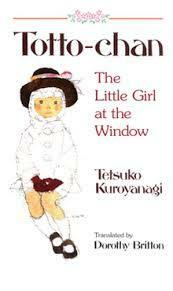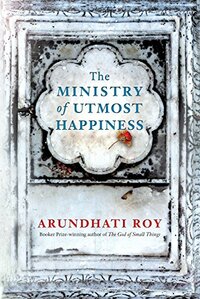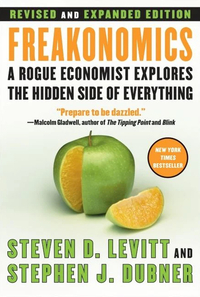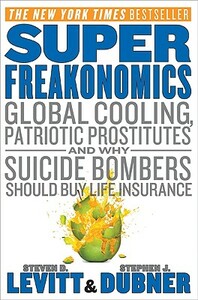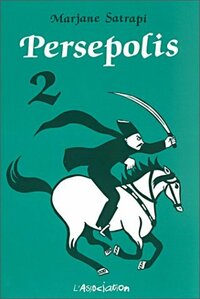You need to sign in or sign up before continuing.
Take a photo of a barcode or cover
krishnendu's Reviews (58)
I now get why my Mother loves this book so much!! Probably the cutest memoir ever written. Highly recommend that educators and parents give this a read and find inspiration in Master Kobayashi. I adore how love, loss, and grief are explored through the eyes of little Totto-chan; it was a deeply refreshing detour from the usual adult, mature approaches to them.
Ratings;
5/5 for the Malayalam translation
4/5 for the English version.
Ratings;
5/5 for the Malayalam translation
4/5 for the English version.
A one-of-a-kind detached spectator account of Palestinian suffering in the early 1990s. Contains deeply personal and disturbing panels on Israeli methods of "moderate torture" and the dehumanising conditions in palestinian prisons. Greatest positive I'd its neutral stance, for example, questioning the Koran and its treatment of women while also voicing the plights of people who choose to believe in it. Definitely recommend for an informed perspective on Israel's occupation in palestine, beyond western media's indoctrination
To me, the book felt lacking in both plot and prose. Despite the potential to address urgent topics like the mental health effects of war, racial discrimination, drug abuse, homophobia and childhood trauma, the story danced around them without arriving at anything meaningful. It seemed as if the author compromised on clarity for poetic elegance and tried too hard to seem deep.
I'm usually one to enjoy stream-of-consciousness narratives, but this one felt disjointed, with incongruous words strung together in an attempt to pull off a convincing pretension of a good book. The dense metaphors fell flat. It didn't live up to the hype for me :/
I'm usually one to enjoy stream-of-consciousness narratives, but this one felt disjointed, with incongruous words strung together in an attempt to pull off a convincing pretension of a good book. The dense metaphors fell flat. It didn't live up to the hype for me :/
4.8/5
This is one of those books that profoundly impacts you and changes your perception of society.
Essentially a social and political commentary on India, it addresses a wide array of issues such as caste discrimination, transphobia, corruption, the Kashmir Valley conflict, Maoist insurgency, environmental degradation, and, pervasively, the rise of 'Gujarat ka Lalla' and the rise of the saffron fundamentalist army. It also touches upon significant historical events like the Emergency and subsequent Sikh lynching, the Gujarat riots of 2001, the 1993 Bombay bombings, and the US invasions of Afghanistan and Iraq and its aftermath in India.
The story intertwines the initially independent lives of two complex and bewitching characters: Anjum, a Muslim hijra who lives in a graveyard in Delhi, and Tilottama, a fiercely independent Malayali woman (possibly Roy's alter-ego) deeply entangled in Kashmir's bloody tangle and with Musa, a Separatist militant.
Although it received mixed reviews, especially after a long wait of 20 years after [b:The God of Small Things|9777|The God of Small Things|Arundhati Roy|https://i.gr-assets.com/images/S/compressed.photo.goodreads.com/books/1590282886l/9777._SY75_.jpg|810135], I ended up liking [b:The Ministry of Utmost Happiness|32388712|The Ministry of Utmost Happiness|Arundhati Roy|https://i.gr-assets.com/images/S/compressed.photo.goodreads.com/books/1520327592l/32388712._SY75_.jpg|53001637] even more. I'm in love with Roy's lush, lyrical prose and her mastery of language, with a stream-of-consciousness-like narration and rich elements of magical realism.
I'm glad to have read this work; it will be one of my favourites!
P.S. Eternally grateful to Roy for introducing me to Rasoolan Bai and Leonard Cohen's music.
This is one of those books that profoundly impacts you and changes your perception of society.
Essentially a social and political commentary on India, it addresses a wide array of issues such as caste discrimination, transphobia, corruption, the Kashmir Valley conflict, Maoist insurgency, environmental degradation, and, pervasively, the rise of 'Gujarat ka Lalla' and the rise of the saffron fundamentalist army. It also touches upon significant historical events like the Emergency and subsequent Sikh lynching, the Gujarat riots of 2001, the 1993 Bombay bombings, and the US invasions of Afghanistan and Iraq and its aftermath in India.
The story intertwines the initially independent lives of two complex and bewitching characters: Anjum, a Muslim hijra who lives in a graveyard in Delhi, and Tilottama, a fiercely independent Malayali woman (possibly Roy's alter-ego) deeply entangled in Kashmir's bloody tangle and with Musa, a Separatist militant.
Although it received mixed reviews, especially after a long wait of 20 years after [b:The God of Small Things|9777|The God of Small Things|Arundhati Roy|https://i.gr-assets.com/images/S/compressed.photo.goodreads.com/books/1590282886l/9777._SY75_.jpg|810135], I ended up liking [b:The Ministry of Utmost Happiness|32388712|The Ministry of Utmost Happiness|Arundhati Roy|https://i.gr-assets.com/images/S/compressed.photo.goodreads.com/books/1520327592l/32388712._SY75_.jpg|53001637] even more. I'm in love with Roy's lush, lyrical prose and her mastery of language, with a stream-of-consciousness-like narration and rich elements of magical realism.
I'm glad to have read this work; it will be one of my favourites!
P.S. Eternally grateful to Roy for introducing me to Rasoolan Bai and Leonard Cohen's music.
Freakonomics: A Rogue Economist Explores the Hidden Side of Everything
Steven D. Levitt, Stephen J. Dubner
A 270 page-long reminder that correlation != causality
Superfreakonomics: Global Cooling, Patriotic Prostitutes, and Why Suicide Bombers Should Buy Life Insurance
Steven D. Levitt, Stephen J. Dubner
If Freakonomics was an amusing panel discussion, then SuperFreakonomics is the cafeteria gossip session that makes you fake a phone call to escape.
3.5/5
This is a heartbreakingly beautiful narrative of class and caste struggle, exploitation under capitalism and the appalling conditions of colonial India.
You can't help but be grateful for the gift of literacy when faced with something like
However, despite being an important pre-independence piece of literature, the novel does fall short in some areas, particularly in its representation of women. It resorts to stereotypes and objectification, which disappoints you and detracts from the novel's otherwise powerful social message. The story initially lags, but picks up pace eventually.
Coolie remains relevant after 88 years for its call for societal reform, with the conditions of the protagonists remaining sickening.
This is a heartbreakingly beautiful narrative of class and caste struggle, exploitation under capitalism and the appalling conditions of colonial India.
You can't help but be grateful for the gift of literacy when faced with something like
The warmth of those words, the comfort of them as they insinuated their way into his soul, as the air, subtly, invisibly insinuates itself into the body, the glow of those words, like the protracted joy of sympathy ringing through the space in soft music unconsciously transmitted by a rapt singer to a dimly aware audience, the magic of those words was an inheritance of this woman, through centuries of motherhood. Munoo never forgot those words, cherishing them throughout his life, cherishing them among all the irrecoverable memories of his childhood, as perhaps the most beautiful, the most painful, and the most delightful.
However, despite being an important pre-independence piece of literature, the novel does fall short in some areas, particularly in its representation of women. It resorts to stereotypes and objectification, which disappoints you and detracts from the novel's otherwise powerful social message. The story initially lags, but picks up pace eventually.
Coolie remains relevant after 88 years for its call for societal reform, with the conditions of the protagonists remaining sickening.

